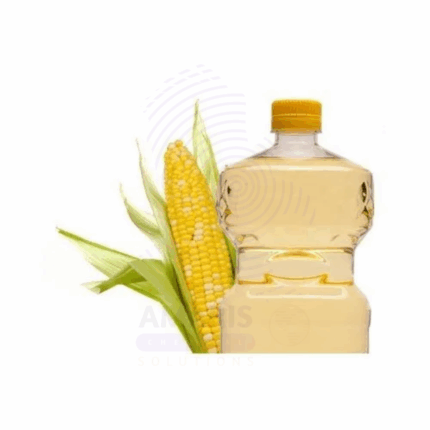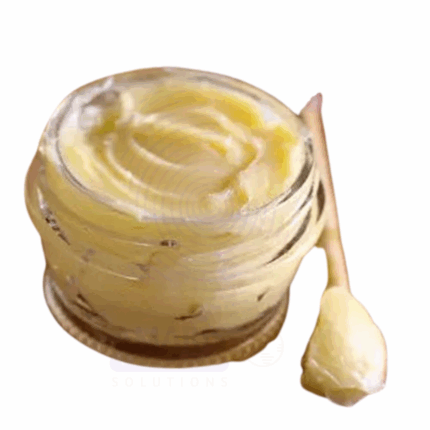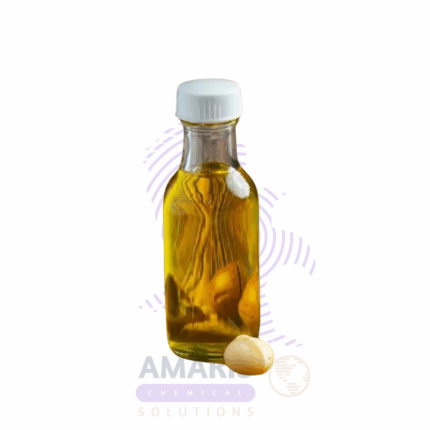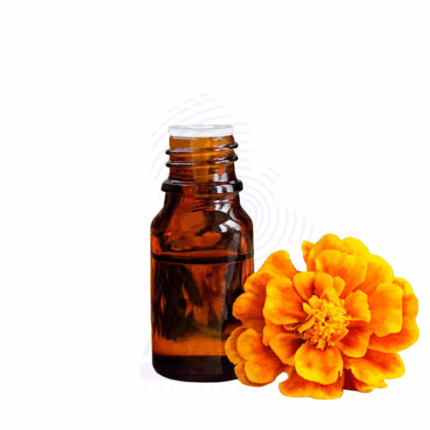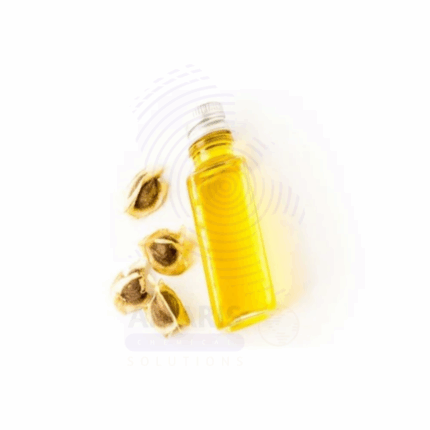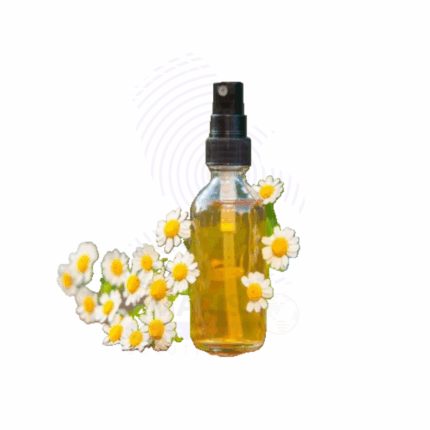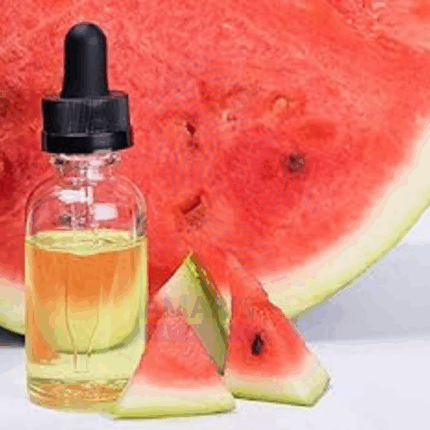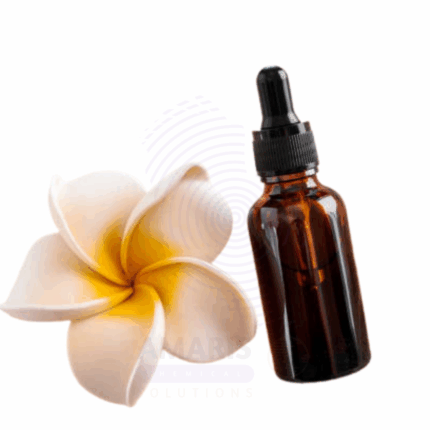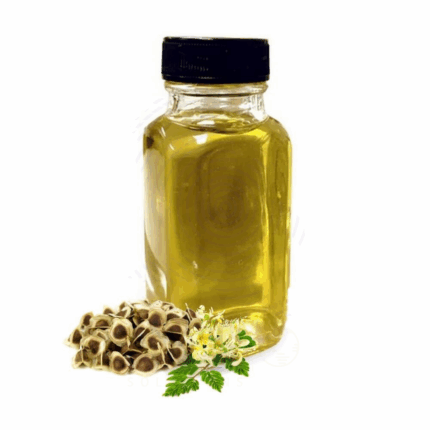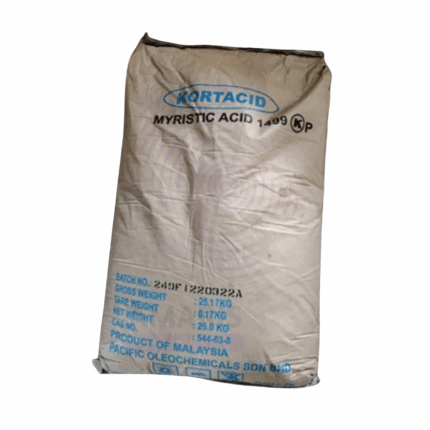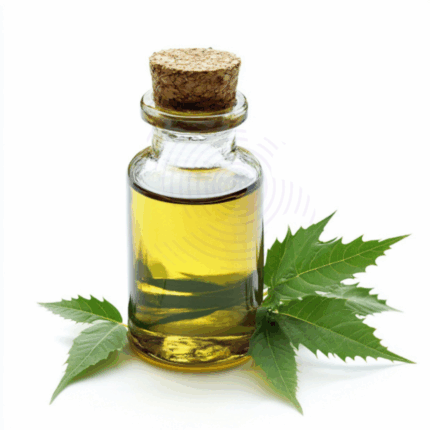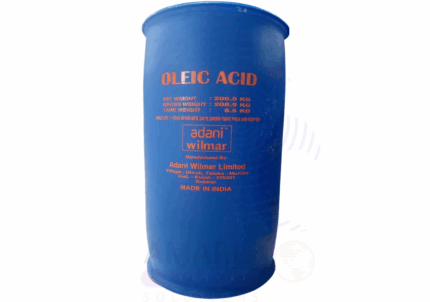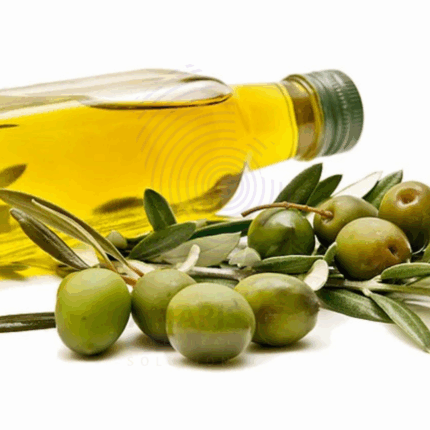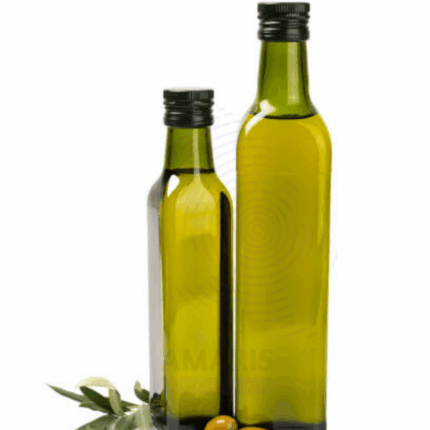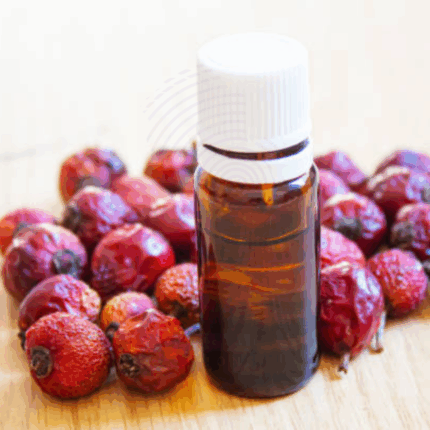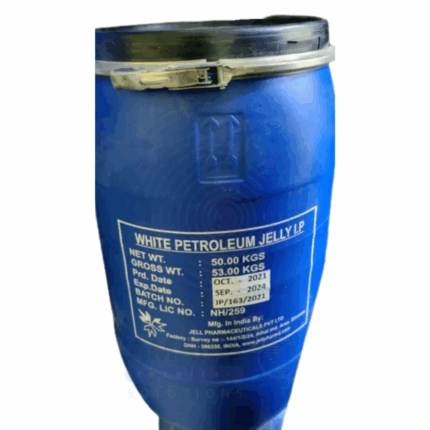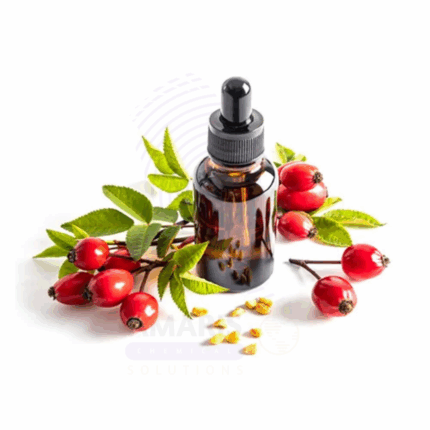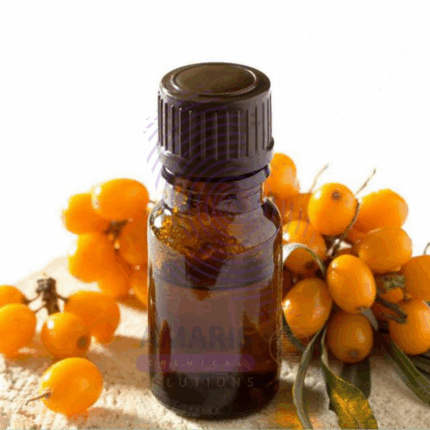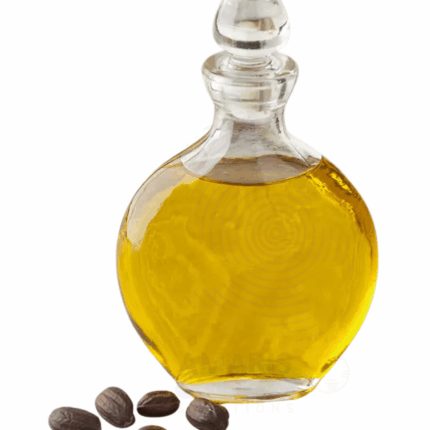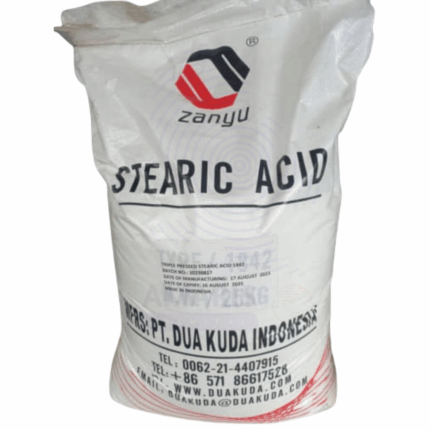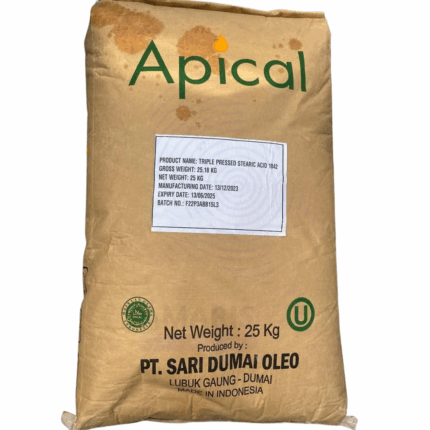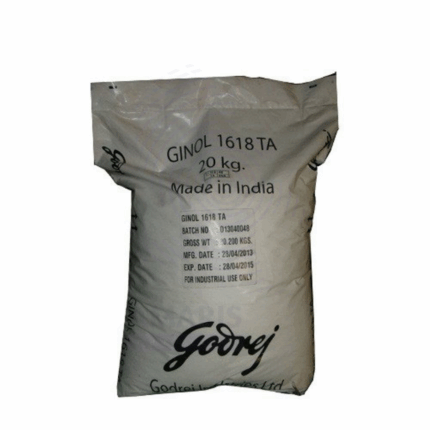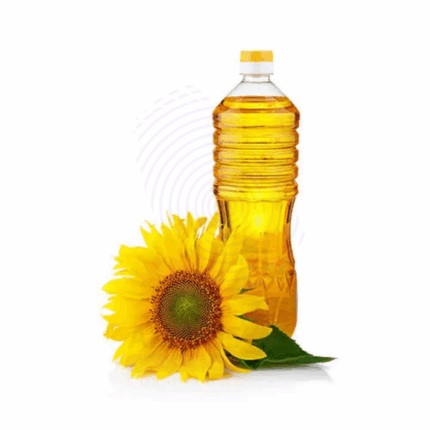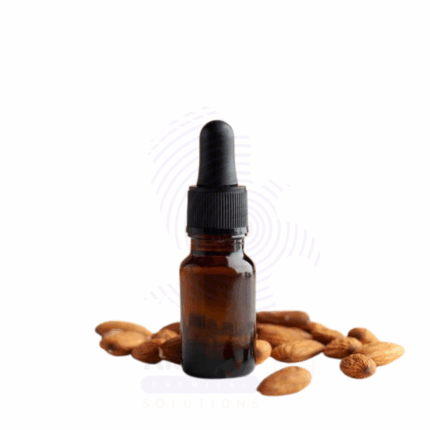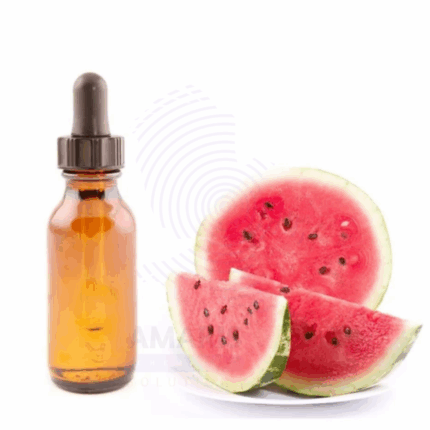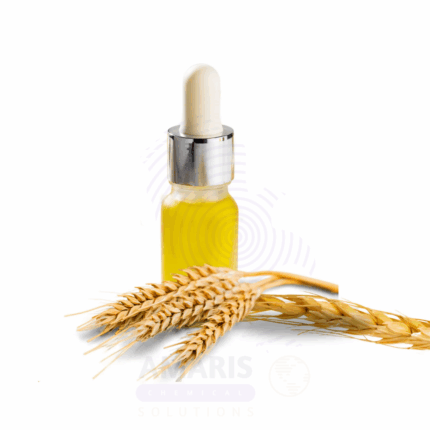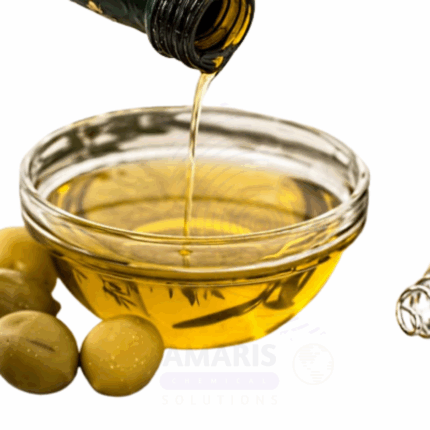
Maize Oil
Maize Oil, also known as Corn Oil, is extracted from the germ of the maize (Zea mays) kernel. It is a light yellow to golden oil with a mild, neutral aroma and a rich source of essential fatty acids, vitamin E, and phytosterols. Maize Oil is widely used in cooking, cosmetics, and industrial applications due to its emollient properties, stability, and light texture. It helps moisturize and protect the skin while improving product spreadability.
This oil is commonly used in formulations for skincare, hair care, and food products, as well as in soap and candle manufacturing. It serves as an affordable, plant-based oil with versatile uses across industries.
Mango Butter Oil
Mango Butter Oil is a natural fat extracted from the kernel of the mango fruit (Mangifera indica). It is a creamy, pale-yellow butter with a mild, sweet, nutty aroma. Rich in fatty acids like oleic, stearic, and linoleic acids, Mango Butter Oil is prized for its excellent moisturizing, emollient, and skin conditioning properties. It is widely used in cosmetics, personal care, and therapeutic products to nourish and soften skin and hair.
Mango Butter Oil absorbs easily without leaving a greasy residue and helps restore skin elasticity, making it popular in lotions, creams, lip balms, and hair care formulations. It also acts as a natural alternative to synthetic emollients and petroleum-based butters.
Manketti Oil Mongongo
Manketti Oil Mongongo, also known as Mongongo Oil, is extracted from the nuts of the Schinziophyton rautanenii tree native to Southern Africa. It is a light, non-greasy oil with a mild, nutty aroma. Rich in essential fatty acids, antioxidants, and vitamin E, Manketti Oil is prized for its moisturizing and skin-conditioning properties. It is commonly used in cosmetic, personal care, and hair care products for hydration and protection.
Marigold Seed Oil
Marigold Seed Oil is a cold-pressed oil extracted from the seeds of Calendula officinalis. It is known for its rich content of carotenoids, vitamin E, and essential fatty acids. This oil has a light, nutty aroma and a golden-yellow color. It is prized for its soothing, anti-inflammatory, and skin-conditioning properties. Marigold Seed Oil is widely used in cosmetic formulations, natural skincare products, and therapeutic balms.
Marula Oil
Marula Oil is a luxurious, cold-pressed oil extracted from the kernels of the fruit of the Sclerocarya birrea tree, native to Southern Africa. Celebrated for its rich antioxidants, essential fatty acids (notably oleic acid), and vitamins C and E, Marula Oil is prized for its lightweight texture and rapid absorption without greasiness. It has a subtle, nutty aroma and a smooth, silky feel, making it ideal for skincare, haircare, and wellness formulations. Traditionally used by African communities for skin hydration and protection, it is globally recognized for its rejuvenating, anti-aging, and moisturizing properties. Marula Oil’s high stability and resistance to oxidation make it excellent for cosmetic and personal care products as a nourishing, non-comedogenic carrier oil. It supports skin elasticity, hair strength, and overall dermal health, making it a sought-after ingredient in premium formulations.
Meadowfoam Oil
Meadowfoam Oil is a premium-quality, cold-pressed carrier oil extracted from the seeds of the Limnanthes alba plant, native to the Pacific Northwest of the United States. Known for its exceptional oxidative stability and long shelf life, Meadowfoam Oil is rich in long-chain fatty acids such as eicosenoic acid, docosenoic acid, and behenic acid. It is a lightweight, non-greasy oil that absorbs easily into the skin, leaving a soft, velvety feel without clogging pores. Odorless and pale yellow in color, this oil is prized in cosmetics and personal care products for its emollient, moisturizing, and barrier-repairing properties. Meadowfoam Oil also enhances the performance and stability of other oils and active ingredients, making it a highly functional base in advanced formulations. Its versatility, stability, and gentle nature have made it a key ingredient in skincare, haircare, makeup, and wellness products.
Melon Seed Oil
Melon Seed Oil, derived from the seeds of the Cucumis melo (melon) fruit, is a lightweight, non-greasy carrier oil valued for its moisturizing and nourishing properties. Rich in essential fatty acids, vitamins A, C, and E, and antioxidants, this oil supports skin hydration, elasticity, and repair. Traditionally used in skin and hair care formulations, Melon Seed Oil is prized for its ability to soften and protect delicate or sensitive skin without clogging pores. Its mild, slightly nutty aroma makes it an excellent base oil for cosmetic, therapeutic, and personal care applications.
Monoi Oil
Monoi Oil is a luxurious, fragrant oil traditionally produced by soaking fresh Tahitian gardenia (Tiare) flowers in refined coconut oil. Known for its rich, exotic floral aroma combined with the nourishing qualities of coconut oil, Monoi Oil is widely cherished in skincare and haircare for its deeply moisturizing, softening, and soothing properties. It has a long history of use in Polynesian beauty rituals to protect and hydrate skin and hair from harsh sun and saltwater exposure. Today, Monoi Oil is a prized ingredient in cosmetics, personal care products, and spa formulations, celebrated for its sensory appeal and restorative benefits.
Moringa Oil
Moringa Oil, also known as Ben Oil, is a light, non-greasy oil extracted from the seeds of the Moringa oleifera tree. Celebrated for its high oleic acid content and rich antioxidant profile, this oil offers excellent moisturizing, anti-aging, and skin-regenerating properties. Its mild, slightly nutty aroma and excellent absorption make it a favored ingredient in skincare and haircare formulations. Traditionally used in natural medicine and beauty treatments, Moringa Oil supports skin nourishment, elasticity, and protection against environmental stressors.
Myristic Acid
Myristic Acid is a saturated fatty acid with a 14-carbon chain, naturally found in nutmeg, coconut oil, palm kernel oil, and butter fat. It appears as a white crystalline solid with a faint odor. It is widely used in the manufacture of soaps, cosmetics, surfactants, and food additives due to its emollient and cleansing properties. Myristic Acid acts as a key intermediate in the production of esters, detergents, and lubricants.
Neem oil
Neem oil is a natural vegetable oil pressed from the fruits and seeds of the neem tree (Azadirachta indica). It is characterized by its strong, pungent odor and dark brown color. Rich in active compounds like azadirachtin, nimbin, and fatty acids, neem oil is renowned for its insecticidal, antifungal, and antibacterial properties. It is widely used in organic farming, cosmetics, and traditional medicine for its therapeutic and protective benefits.
Oleic Acid
Oleic Acid is a naturally occurring monounsaturated fatty acid commonly derived from vegetable oils such as olive, sunflower, and canola oils. This oily liquid is widely used in the chemical, pharmaceutical, cosmetic, and food industries due to its excellent emollient, surfactant, and stabilizing properties. Oleic Acid 75% is a key raw material in manufacturing soaps, detergents, lubricants, and personal care products. Its amphiphilic nature makes it an effective emulsifier and penetration enhancer.
Olive Butter
Olive Butter is a natural, creamy, and rich emollient derived from cold-pressed olive oil combined with other natural butters (such as shea or cocoa butter) to create a luxurious skin-conditioning product. It is prized for its deep moisturizing, antioxidant-rich, and soothing properties, making it a popular ingredient in skincare, haircare, and cosmetic formulations. Olive Butter enhances skin elasticity, provides nourishment, and forms a protective barrier against environmental stressors.
Olive Oil Pomace
Olive Oil Pomace is a refined oil extracted from the olive pulp, skin, and pits after the first pressing. It is a lower-cost olive oil variant with a mild flavor and good stability. Rich in monounsaturated fatty acids, particularly oleic acid, and antioxidants like vitamin E and polyphenols, pomace olive oil offers nutritional benefits and excellent oxidative stability. It is widely used in culinary, cosmetic, pharmaceutical, and industrial applications due to its moisturizing properties and mild aroma. Pomace olive oil is favored in formulations where a lighter olive aroma is desired, and it also serves as a base oil in soap making, skincare, and massage oils.
Olive Oil Virgin
Olive Oil Virgin is a natural oil obtained from the first cold pressing of olives without the use of chemicals or excessive heat, preserving its rich flavor and nutritional qualities. It is characterized by a fruity aroma and a balanced taste, containing high levels of monounsaturated fatty acids, particularly oleic acid, as well as antioxidants such as polyphenols and vitamin E. Virgin olive oil is widely valued for its health benefits, culinary versatility, and skin conditioning properties. It is extensively used in food preparation, cosmetic formulations, and pharmaceutical applications, offering moisturizing, antioxidant, and anti-inflammatory effects.
Palm kernel Oil
Palm Kernel Oil is a versatile edible and industrial oil extracted from the kernels (seeds) of the oil palm fruit (Elaeis guineensis). It is distinct from palm oil, which is derived from the fruit’s pulp. This oil is characterized by its light yellow color and mild, nutty aroma. Rich in medium-chain fatty acids, particularly lauric acid, Palm Kernel Oil exhibits excellent moisturizing, cleansing, and emulsifying properties. Widely used in food, cosmetics, and industrial applications, it is valued for its stability, texture-enhancing qualities, and skin-conditioning benefits.
Petroleum Jelly
Petroleum Jelly is a semi-solid mixture of hydrocarbons, originally derived from petroleum refining. It is odorless, colorless (or slightly yellow), and known for its moisturizing, protective, and lubricating properties. Widely used in cosmetics, pharmaceuticals, and industrial applications, Petroleum Jelly forms a barrier on the skin that locks in moisture and protects against irritants. The 175kg packaging is typical for bulk industrial or large-scale cosmetic use.
Safflower Oil
Safflower Oil is a high-quality, cold-pressed or expeller-extracted vegetable oil derived from the seeds of the Carthamus tinctorius plant. Pale yellow in color and light in texture, this oil is rich in linoleic and oleic acids, making it a valuable source of essential fatty acids. It is prized for its moisturizing, anti-inflammatory, and antioxidant properties and has been used for centuries in traditional medicine, culinary applications, and skin and hair care routines.
Due to its non-comedogenic and quick-absorbing nature, Safflower Oil is widely used in cosmetic formulations such as lotions, serums, and hair treatments. It is also commonly incorporated into massage oils, therapeutic balms, and healthy cooking oils. In industrial and pharmaceutical contexts, it serves as an excipient, emollient, or carrier oil in active ingredient delivery systems.
Sesame oil
Sesame oil is a versatile vegetable oil extracted from sesame seeds (Sesamum indicum). It is available in both unrefined (light color, nutty flavor) and refined (neutral flavor) varieties. Rich in antioxidants like sesamol and sesamin, as well as unsaturated fats, it is valued for its stability, nutritional benefits, and mild skin-conditioning properties. It is widely used in cooking, cosmetics, and pharmaceutical formulations.
Soya Fatty Acid
Soya Fatty Acid is a natural fatty acid mixture derived from soybean oil. It appears as a yellow to amber oily liquid or semi-solid and is rich in unsaturated fatty acids, mainly linoleic and oleic acids. This 25kg packaged product is widely used as a raw material in the production of soaps, detergents, lubricants, and cosmetics. Its excellent emulsifying properties and biodegradability make it suitable for various industrial and personal care applications.
Stearic Acid
Stearic Acid is a saturated long-chain fatty acid, appearing as a white, waxy solid with a mild, characteristic odor. It is a naturally occurring substance found in animal and vegetable fats and oils. As one of the most common fatty acids, it is a fundamental building block in the manufacture of a vast array of consumer and industrial products. Its key functions include use as a lubricant, softener, thickener, and emulsifier, making it an indispensable ingredient in industries ranging from plastics and rubber to cosmetics and food.
Stearyl Alcohol
Stearyl Alcohol is a high-purity, long-chain fatty alcohol derived from natural fats and oils. It is widely used across various industries due to its emulsifying, thickening, and lubricating properties. In industrial and cosmetic formulations, it functions as a non-ionic surfactant, emollient, and viscosity modifier. The 98% purity ensures consistent performance in applications requiring high-grade material.
Sunflower Oil
Sunflower Oil is a versatile vegetable oil extracted from the seeds of Helianthus annuus, native to North America but now cultivated globally. It is commonly obtained through cold pressing or refining and is valued for its light texture, neutral scent, and high content of essential fatty acids—particularly linoleic and oleic acids—as well as natural tocopherols (vitamin E). With excellent antioxidant, emollient, and anti-inflammatory properties, Sunflower Oil is widely used in food products, skincare formulations, hair care, massage therapies, and pharmaceutical preparations. Its ability to nourish and protect the skin barrier makes it a key ingredient across both wellness and industrial markets.
Sweet Almond Oil
Sweet Almond Oil is a nutrient-rich vegetable oil cold‑pressed or solvent‑extracted from the kernels of Prunus amygdalus var. dulcis, widely cultivated in Mediterranean and subtropical regions. It offers a light, non-greasy texture and a subtle nutty aroma. Rich in oleic and linoleic fatty acids, vitamin E (tocopherols), phytosterols, and antioxidants, it provides moisturizing, anti-inflammatory, softening, and skin barrier–strengthening properties. Sweet Almond Oil is popular in culinary applications, skincare, hair care, massage blends, and therapeutic formulations.
Tally Oil Acid
Tally Oil Acid is a fatty acid derived from tall oil, a byproduct of the kraft pulping process in the paper industry. It contains a mixture of fatty acids, mainly oleic and linoleic acids, and is used as a raw material in chemical manufacturing, soaps, lubricants, and other industrial applications. The product is valued for its renewable origin and versatile chemical properties.
Watermelon Seed Oil
Watermelon Seed Oil, also known as Kalahari Oil or Ootanga Oil, is a lightweight, fast-absorbing oil cold-pressed from the seeds of the Citrullus lanatus fruit. This oil is pale yellow with a mild, nutty aroma and is rich in essential fatty acids—particularly linoleic acid (omega-6) and oleic acid (omega-9)—as well as antioxidants, phytosterols, and vitamins A, B, and E. Known for its nourishing, non-comedogenic, and balancing properties, Watermelon Seed Oil is widely used in skincare, haircare, baby care, and massage products. It is ideal for all skin types, especially oily, acne-prone, and sensitive skin due to its ability to dissolve sebum and unclog pores while maintaining hydration.
Wheatgerm Oil
Wheatgerm Oil is a nutrient-rich, golden-colored oil extracted from the germ of the wheat kernel (Triticum vulgare), typically through cold pressing or solvent extraction. It is exceptionally high in vitamin E, essential fatty acids (especially linoleic and linolenic acid), squalene, phytosterols, and antioxidants, making it one of the most potent natural oils for skin and hair rejuvenation. With its slightly nutty aroma and viscous texture, Wheatgerm Oil is widely used in cosmetic, pharmaceutical, nutraceutical, and aromatherapy applications for its antioxidant, anti-aging, moisturizing, and healing benefits.
Yucca Oil
Yucca Oil is a natural extract derived from the roots and stems of the Yucca schidigera plant, native to arid regions of the southwestern United States and Mexico. Typically processed through cold pressing or solvent extraction, this oil is known for its earthy, slightly herbal aroma and its high content of natural saponins, resveratrol, and antioxidants. Traditionally used by Indigenous cultures for medicinal and cleansing purposes, Yucca Oil is recognized today for its anti-inflammatory, antimicrobial, and cleansing properties. It is widely utilized in cosmetics, hair and scalp treatments, animal care formulations, and natural cleaning solutions.


 Preservatives(food)
Preservatives(food) Flavor Enhancers
Flavor Enhancers Acidulants
Acidulants Sweeteners
Sweeteners Antioxidants
Antioxidants Colorants(food)
Colorants(food) Nutraceutical Ingredients (food)
Nutraceutical Ingredients (food) Nutrient Supplements
Nutrient Supplements Emulsifiers
Emulsifiers
 Collectors
Collectors Dust Suppressants
Dust Suppressants Explosives and Blasting Agents
Explosives and Blasting Agents Flocculants and Coagulants
Flocculants and Coagulants Frothers
Frothers Leaching Agents
Leaching Agents pH Modifiers
pH Modifiers Precious Metal Extraction Agents
Precious Metal Extraction Agents
 Antioxidants(plastic)
Antioxidants(plastic) Colorants (Pigments, Dyes)
Colorants (Pigments, Dyes) Fillers and Reinforcements
Fillers and Reinforcements Flame Retardants
Flame Retardants Monomers
Monomers Plasticizers
Plasticizers Polymerization Initiators
Polymerization Initiators Stabilizers (UV, Heat)
Stabilizers (UV, Heat)
 Antifoaming Agents
Antifoaming Agents Chelating Agents
Chelating Agents Coagulants and Flocculants
Coagulants and Flocculants Corrosion Inhibitors
Corrosion Inhibitors Disinfectants and Biocides
Disinfectants and Biocides Oxidizing Agents
Oxidizing Agents pH Adjusters
pH Adjusters Scale Inhibitors( water)
Scale Inhibitors( water)
 Antioxidants(cosmetic)
Antioxidants(cosmetic) Emollients
Emollients Fragrances and Essential Oils
Fragrances and Essential Oils Humectants
Humectants Preservatives
Preservatives Surfactants(cosmetic)
Surfactants(cosmetic) Thickeners
Thickeners UV Filters
UV Filters
 Fertilizers
Fertilizers Soil Conditioners
Soil Conditioners Plant Growth Regulators
Plant Growth Regulators Animal Feed Additives
Animal Feed Additives Biostimulants
Biostimulants Pesticides (Herbicides, Insecticides, Fungicides)
Pesticides (Herbicides, Insecticides, Fungicides)
 Active Pharmaceutical Ingredients (APIs)
Active Pharmaceutical Ingredients (APIs) Excipients
Excipients Solvents(pharmaceutical)
Solvents(pharmaceutical) Antibiotics
Antibiotics Antiseptics and Disinfectants
Antiseptics and Disinfectants Vaccine Adjuvants
Vaccine Adjuvants Nutraceutical Ingredients (pharmaceutical)
Nutraceutical Ingredients (pharmaceutical) Analgesics & Antipyretics
Analgesics & Antipyretics
 Analytical Reagents
Analytical Reagents Solvents(lab)
Solvents(lab) Chromatography Chemicals
Chromatography Chemicals Spectroscopy Reagents
Spectroscopy Reagents microbiology-and-cell-culture-reagents
microbiology-and-cell-culture-reagents Molecular Biology Reagents
Molecular Biology Reagents Biochemical Reagents
Biochemical Reagents Inorganic and Organic Standards
Inorganic and Organic Standards Laboratory Safety Chemicals
Laboratory Safety Chemicals Specialty Laboratory Chemicals(Special Laboratory Equipment)
Specialty Laboratory Chemicals(Special Laboratory Equipment)
 Demulsifiers
Demulsifiers Hydraulic Fracturing Fluids
Hydraulic Fracturing Fluids Scale Inhibitors(oil)
Scale Inhibitors(oil) Surfactants(oil)
Surfactants(oil) Drilling Fluids
Drilling Fluids
 Dyes and Pigments
Dyes and Pigments Bleaching Agents
Bleaching Agents Softening Agents
Softening Agents Finishing Agents
Finishing Agents Antistatic Agents
Antistatic Agents
 Admixtures
Admixtures Waterproofing Agents
Waterproofing Agents Sealants and Adhesives
Sealants and Adhesives Curing Compounds
Curing Compounds Concrete Repair Chemicals
Concrete Repair Chemicals Anti-Corrosion Coatings
Anti-Corrosion Coatings
 Surfactants(cleaning)
Surfactants(cleaning) Builders
Builders Enzymes
Enzymes Solvents (Cleaning)
Solvents (Cleaning) Fragrances
Fragrances
 Electronic Chemicals
Electronic Chemicals Catalysts
Catalysts Lubricants
Lubricants Photographic Chemicals
Photographic Chemicals Refrigerants
Refrigerants Automotive chemicals
Automotive chemicals Pyrotechnic Chemicals
Pyrotechnic Chemicals
 Biodegradable Surfactants
Biodegradable Surfactants Bio-based Solvents
Bio-based Solvents Renewable Polymers
Renewable Polymers Carbon Capture Chemicals
Carbon Capture Chemicals Wastewater Treatment Chemicals
Wastewater Treatment Chemicals
 Pigments
Pigments Solvents(paint)
Solvents(paint) Specialty Coatings
Specialty Coatings Binders/Resins
Binders/Resins Additives
Additives Driers
Driers Anti-Corrosion Agents
Anti-Corrosion Agents Functional Coatings
Functional Coatings Application-Specific Coatings
Application-Specific Coatings
 Fresh Herbs
Fresh Herbs Ground Spices
Ground Spices Whole Spices
Whole Spices Spice Blends
Spice Blends Dried Herbs
Dried Herbs
 Leavening Agents
Leavening Agents Dough Conditioners
Dough Conditioners Flour Treatments
Flour Treatments Fat Replacers
Fat Replacers Decoratives
Decoratives Preservatives(baking)
Preservatives(baking)
 Plasticizers & Softeners
Plasticizers & Softeners Reinforcing Agents
Reinforcing Agents Adhesion Promoters
Adhesion Promoters Vulcanizing Agents
Vulcanizing Agents Antidegradants
Antidegradants Blowing Agents
Blowing Agents Fillers & Extenders
Fillers & Extenders Accelerators & Retarders
Accelerators & Retarders

















